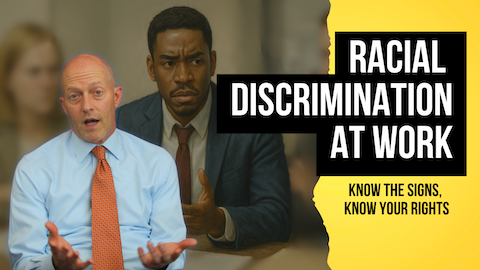
There were three big wins for family responsibilities discrimination to report on this week:
1. Florida Adds Pregnancy to Characteristics of Illegal Discrimination Under Civil Rights Law
About one year ago, the Florida Supreme Court held that the state’s discrimination law’s prohibition on sex discrimination “includes discrimination based on pregnancy, which is a natural condition and primary characteristic unique to the female sex.” This week, the Florida legislature clarified that it is illegal to discriminate against employees based on pregnancy in an amendment to the Florida Civil Rights Act. But the Bill went further: it also prohibits discrimination of pregnant women in places of public accommodation, lodging, and food service. Learn more about the new law in Lexology’s blog post.
A Note on the Law
In some ways, the new Florida law goes further than the federal law prohibiting pregnancy discrimination, the Pregnancy Discrimination Act (PDA). The PDA, as incorporated into Title VII of the Civil Rights Act of 1964, only applies to employers with at least 15 employees. The new Florida law includes a provision that will protect business patrons—not just employees—from being refused service on the basis of their pregnancy. But, in another way, the PDA and Title VII offer broader pregnancy protections by including language that specifically prohibits discrimination based on “childbirth, and other related conditions” as sex discrimination. This means that an employer cannot take adverse employment actions against a current, former, or potentially pregnant woman because of her lactation, infertility treatment, gestational diabetes, or any other pregnancy-related condition. Those few extra words give families significant additional protections.
2. Staples Settles With Former Employee for FMLA Violations
This week in South Carolina, Staples—the big box business supply store—settled with a former employee for $275,000 over a year after terminating his employment when he needed to take leave to help care for his wife who was receiving cancer treatment. The employee, Jeffrey Angstadt, notified his employer of his wife’s diagnosis and said he would need to take leave to care for her. After taking some intermittent leave and working remotely, Angstadt was put on a performance review and fired. Read more about the story from The State.
A Note on the Law
The Family and Medical Leave Act (FMLA) provides for 12 weeks of unpaid leave each year to any eligible employee (working at least 12 months and at least 1,250 hours—about 25 hours per week—in the last 12 months) working for a covered employer (one with at least 50 employees) for the birth or placement of a child; to care for a spouse, child, or parent who has a serious medical condition; or for the employee to recover from his or her own serious medical condition. When an employee needs to take leave for the purpose of taking care of a close family member or of herself or himself due to a serious medical condition, the leave may be taken intermittently if it is medically necessary. In this case, Angstadt likely needed to take intermittent leave due to the long course and shifting periods of intensity of his wife’s treatment. While employees and employers can agree to intermittent leave after the birth or placement of a new child, neither party is required to agree to that arrangement.
3. Nonprofit Ordered to Pay Employee $75,000 After Firing Her While Enforcing a No Pregnancy in the Workplace Policy
The Pregnancy Discrimination Act was enacted almost 40 years ago; yet one employer—United Bible Fellowship Ministries—recently thought it appropriate to have a no pregnancy in the workplace policy for its work providing residential and housing services to people with disabilities. The policy, which was intended to protect the safety of the employee and her unborn child, required that any employee who became pregnant be fired. One employee subjected to the implementation of this policy, Sharmira Johnson, brought her complaint of discrimination to the Equal Employment Opportunity Commission (EEOC). After trying to mediate the dispute, the EEOC prosecuted Johnson’s charge and a federal court found for her, ordering $25,000 in backpay and overtime with interest, as well as $50,000 in punitive damages. Read the EEOC’s press release on the case here.
A Note on the Law
This case sounds eerily like a case the Supreme Court took up in 1990 called Automobile Workers v. Johnson Controls. In that case, a battery manufacturer implemented a fetal protection policy that prevented any woman who was not medically noted as infertile from working in the factory. While the policy was created with the intent to protect pregnant women and their unborn children from exposure to high levels of lead exposure, the Supreme Court unanimously agreed that the policy was discriminatory. The Court clarified that policies that discriminate based on a protected characteristic under Title VII are only permitted when they are based on a bona fide occupational qualification (BFOQ): a qualification that is required for the normal operation of the business. In both of these cases, the employers failed to show that being pregnant meant the employees could not complete the essential functions of their jobs. So, the employers had no defense to their explicitly discriminatory policies, no matter their intent.
If you think you’ve been the victim of discrimination, sexual harassment, or retaliation, contact our office so we can talk about how you’ve been treated, the applicable laws, and your legal options.





